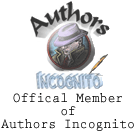I did something everyone says to NEVER, EVER do next in my writing journey: I started a sequel before I sold the first book of the series. Before I submitted it. Before I edited it!
I couldn’t help it! The idea was so shiny and all of the sudden, I had a first chapter sitting there, staring,  waiting. A couple months later, I’d finished the sequel. I knew it wasn’t as good as the first book—it was lacking in some tension, if I remember correctly. But it was fun.
waiting. A couple months later, I’d finished the sequel. I knew it wasn’t as good as the first book—it was lacking in some tension, if I remember correctly. But it was fun.
And then I did it again, with a third book in the series. Within a year, I’d written a complete three-book series.
And sold or submitted none of them.
This is crazy talk.
The conventional writing wisdom is that you don’t want to waste your time on a book that will be totally doomed if the first one doesn’t sell. And that is very wise.
But at the same time, as one of my critique partners/writing friends said at the time, these are the “salad days” of our writing careers. If we want to invest our time in something that we know is doomed, will never sell, or is just stupid, we can.
As your writing career progresses, you’ll sign contracts. You’ll promise books by certain days. You’ll have deadlines and expectations. You still have the chance to explore and take risks, but those things usually drop down in the priority list after the paying projects you’ve promised people.
If ever there were a time to write these novels, it was then. I had the time, I had the passion, and I had the freedom. I decided that even though I knew there was a good chance these books would never see the light of day, they were where my heart lay at the time, and without other career commitments, it might even be possible that writing anything else would’ve been the wrong choice.
Polishing up the first one
 Amid writing three books in a year (I’ve only done that once, okay? I reserve the right to repeat it
Amid writing three books in a year (I’ve only done that once, okay? I reserve the right to repeat it 
Of course, back then I had a very limited understanding of “editing.” I know I’m not the only person who thought spell check and consistency were pretty much the only things you had to do to a book. (And let’s be honest; I’m checking spelling & grammar as I go.)
I’ve mentioned this before, but author Natalie Whipple knows where I’m coming from, as she lists “I wish I took editing seriously” as one of the things she wished she’d done differently in her writing journey:
I spent way too long doing edits that did not cut it. Sadly, it wasn’t until my 8th book that I really learned how to revise. Before that, I would do as little as humanly possible to satisfy my crit partners’ concerns. I never made big enough changes, never believed I NEEDED to make bigger changes. It was only when I really dug in, saw my story as malleable, that I truly improved.
Amen, sister.
So, I worked on the first book. I did get a little more in-depth than spell checking, but for the life of me, I cannot remember what kind of changes I actually made.
So I changed other stuff
However, I made other “professional” changes during this time. I started going out to author events at my local bookstore and made friends. I started my blog (thanks for reading!). I went to my first writers’ conference. I met an editor—I, introverted me, walked up to an editor and introduced myself and gave him my card! He gave me his! He invited me to submit to him (which he did with everybody at this conference; he works at a small publisher so he does get a lot of direct submissions anyway). He was super nice. I said super stupid things. (My surname was the ~1500th most popular in the country in the 2000 census. Fun fact.)
 At that writing conference, I joined a “writers’ support group” of sorts, an email list for attendees of the conference, and met 200 new writing friends. I critiqued some of these gracious friends’ writing, and they were kind enough to critique mine. We laughed and cried together, and I’m still happy to be a member of Authors Incognito.
At that writing conference, I joined a “writers’ support group” of sorts, an email list for attendees of the conference, and met 200 new writing friends. I critiqued some of these gracious friends’ writing, and they were kind enough to critique mine. We laughed and cried together, and I’m still happy to be a member of Authors Incognito.
In reality, even without the three books, it was a dang good year for writing—the “salad days” where I could make mistakes, have fun and just enjoy myself.
And then I went and thought I was ready to submit my novel.
What do you think? When were your “salad days” of writing? How did you spend them? Come share your writers’ journey!
Image credits: salad days—Angie Farr; original of re-envision photos by Briana Zimmers


 At the conference, I was stunned—STUNNED—when my first chapter
At the conference, I was stunned—STUNNED—when my first chapter  I have to admit: I kinda Facebook stalked this latest editor. (I’d never met her! I had to do it!) In her public pictures, I found someone I’d known as a teenager back home. Turns out they were good friends! Small world.
I have to admit: I kinda Facebook stalked this latest editor. (I’d never met her! I had to do it!) In her public pictures, I found someone I’d known as a teenager back home. Turns out they were good friends! Small world.



